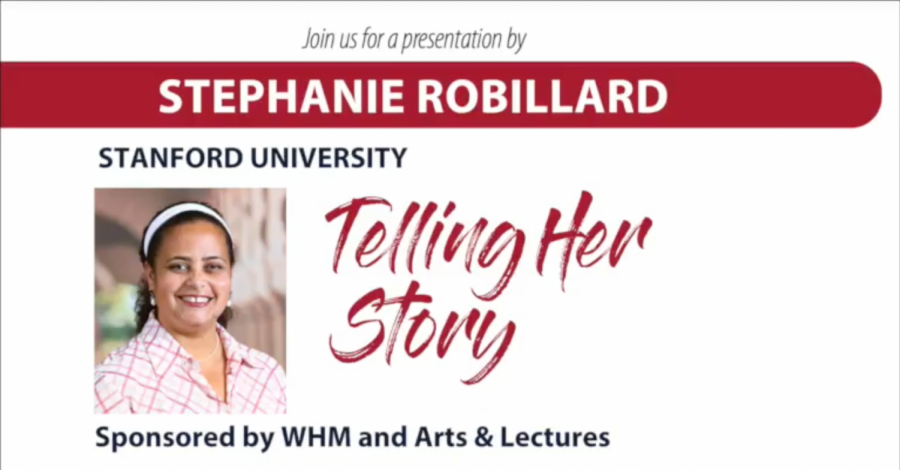Stanford University doctoral candidate Stephanie Robillard explored the importance of students being exposed to Young Adult Multicultural Literature (YAML), held space for inclusive stories told by members of the community they’re representing, and discussed the findings of her 2020 “Telling Her Story” study with Santa Rosa Junior College students and staff March 1 over Zoom.
According to Robillard, primary school teachers in the early stages of their career struggle to find and implement the use of more diverse YAML in their classrooms.
“Multicultural literature allows students to see both themselves reflected and to see into worlds that they are not familiar with,” Robillard said, referencing Dr. Rudine Sims Bishop’s belief that children need both what she termed “windows” and “mirrors.”
“These narratives challenge encoded messages about who matters, whose voice is elevated and whose is not,” she said.
Robillard explained this counter-narrative quality of YAML proved a challenge in bringing stories to the table, accelerated by a lack of established policies to support first year teachers hoping to update and diversify curriculum.
Sophia, the Northern Californian teacher from Robillard’s study, was already navigating challenging topics like human sexuality and violence in standardized books “The Giver” and “Fahrenheit 451,” but expressed concern about negative feedback and lack of protection from parent reactions to equally challenging and simultaneously diverse narratives.
Robillard recommended establishing a supportive community of fellow educators to aid beginning teachers who aim to uplift voices in new texts, and for schools and districts to write specific policies outlining the process of how educators add new books to the curriculum.
“Having some sort of framework that is crafted in advance, that allows for periodic, systematic review of books, and that allow for books to be adopted into the collection of materials that are taught protects teachers from any sort of blowback from the community,” she said.
Exposure to YAML in early adolescence is vital to challenge the narrative put forth by what we have been encultured to believe are relatable and representative stories. Books like “To Kill a Mockingbird” and “The Adventures of Huckleberry Finn” are held up for how they handle racial issues, but remain limited in scope and perspective for students who may not relate to white-centered stories.
“What are we telling those who never get their stories told, or infrequently?” Robillard asked.
“We are telling them that they do not matter. That their stories don’t matter. That white stories, stories about white men in particular, are the universal that we can all draw from. Whiteness becomes the normal by which everything else is compared, and that is unacceptable.”
Robillard’s presentation and recommended resources can be found on SRJC’s Women’s History Month page, where information on all remaining Women’s History Month events can also be found.




